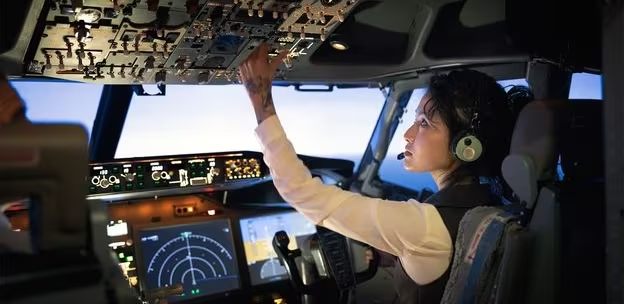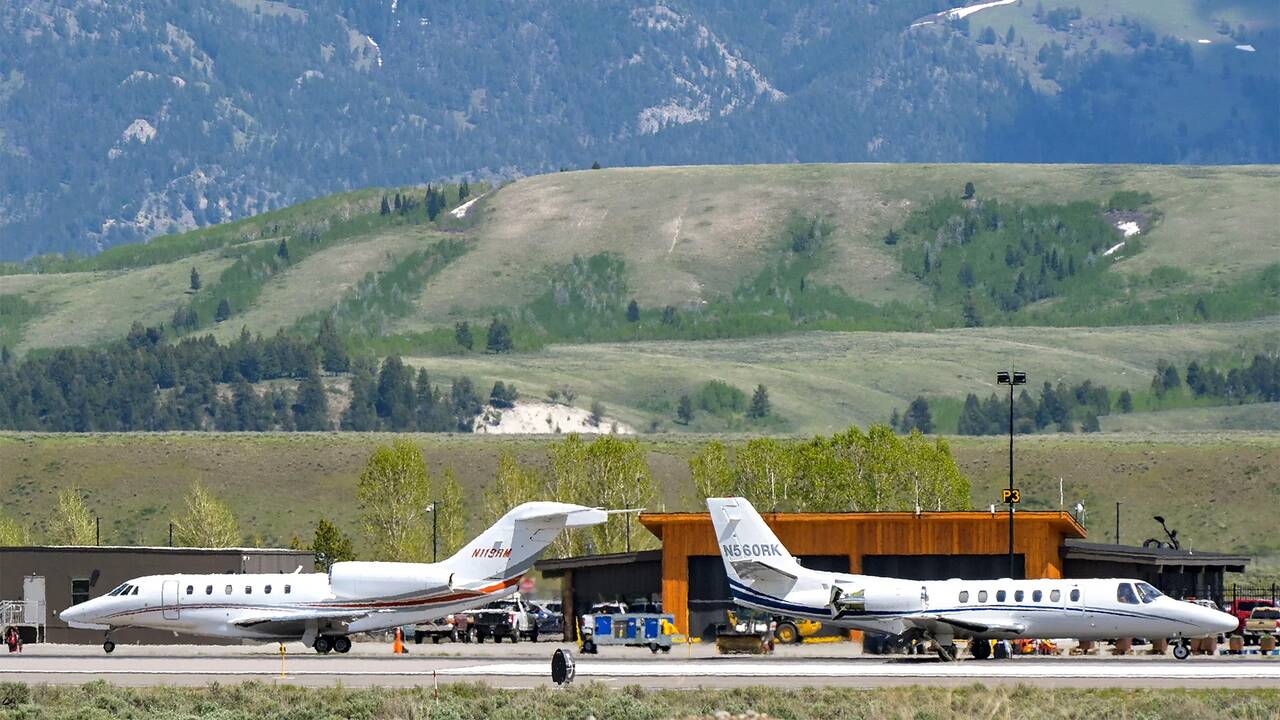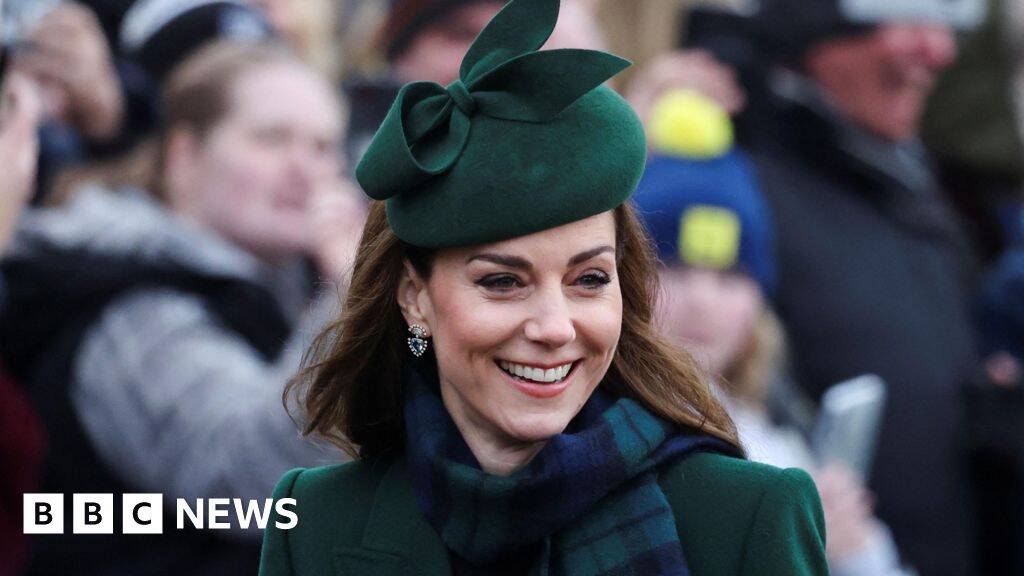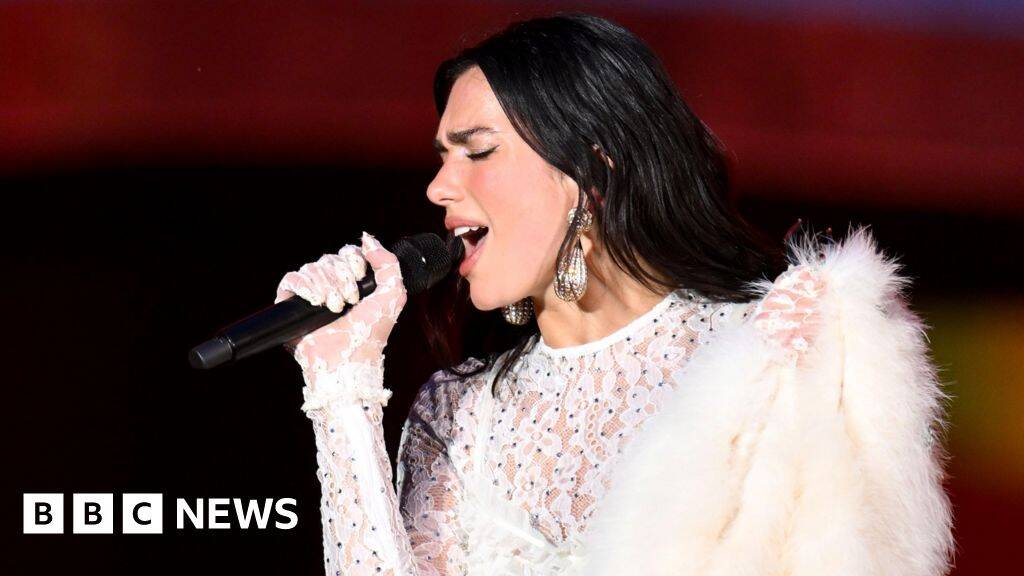The insiders changing how we think about flying
BBC | 13.11.2025 20:00
Flying has always felt like magic: step inside a metal tube, lift through clouds, arrive somewhere entirely different. But the magic has a cost – one the industry has long encouraged us not to look at too closely.
Aviation accounts for around 2.5% of global CO2 emissions, and roughly 4% of human-driven warming once other climate effects are included. The United Nations warns that without intervention, those emissions could triple by 2050. Yet the impact of flying is far from evenly shared. Just 1% of the world's population is responsible for more than half of all passenger aviation emissions, while most people never board a plane at all.
Few sectors highlight the disparity in emissions more starkly than private aviation. One recent study found that the United States alone produces 55% of the world's private jet emissions, and private flights have surged since the Covid-19 pandemic, rising nearly 50% since 2019. At the same time, expansion continues: London's Gatwick Airport, for instance, was recently cleared to build a second runway, enabling up to 100,000 additional flights each year.
Those competing realities are now shaping international climate negotiations. Last June, eight countries, including France, Spain, Kenya and Barbados, launched a Premium Flyers Solidarity Coalition that aims to introduce a levy on private jets, first- and business-class air travellers to ensure that those who fly most contribute proportionally more to climate adaptation and loss-and-damage funding.
"It's about rebalancing towards climate and tax justice," said Friederike Roder, Director of the Secretariat for the Global Solidarity Levies Task Force, the international body that's responsible for supporting and coordinating the coalition's development. "While everyday car drivers pay heavy fuel taxes, kerosene on international flights has remained largely untaxed for historic reasons. Aviation just isn't providing its fair share. This is a first step to change that."
With COP30 currently taking place in Brazil, the coalition is starting formal negotiations and working to expand membership, potentially paving the way for the first global tax on luxury flying.
The people impacted most by climate and ecological breakdown have likely never even been on a plane – Todd Smith
Yet the future of aviation isn't only being written at climate summits. It's also unfolding in cockpits, crew rooms and engineering hangars, as insiders quietly reassess what it means to fly in a warming world.
One such insider is Todd Smith, a former Senior First Officer for Thomas Cook. Smith left commercial flying in 2020 after a gradual shift in how he perceived his beloved industry – a shift that began with a moment of uneasy wonder during a trip to Peru in 2018.
Smith had travelled to the Andes to see Rainbow Mountain, a ridge of striking mineral colours at nearly 5,000m (16,404ft). The site had only recently started attracting visitors after the glacier that once covered it melted due to rising temperatures. Standing among hundreds of tourists on the trail, he realised the beauty he was witnessing was the direct result of global warming. "Up until then, I hadn't even heard the term 'climate crisis'," he said. "That experience changed me."
Feeling that aviation was becoming "morally compromised", Smith began studying climate science and, in 2020, co-founded Safe Landing, a collective of pilots, engineers and aviation workers advocating faster, science-based climate progress within the industry.
For Smith, that progress looks like restructuring how and where we fly. "Carbon offsetting and scaling up so-called sustainable aviation fuels is clearly not the way in which we can carry on," he said. Sustainable aviation fuels (SAF), made from waste materials or plant feedstocks, are often touted as the industry's green solution. But supply is limited and scaling to global demand remains extremely difficult.
Instead, Smith advocates for investing in emerging short-haul electric and hybrid-electric aircraft, which could be commercially viable within the next decade, and re-designing flight routes around them – more regional hubs, shorter hops, slower long-distance travel.
He believes that taxing those who fly the most must also be part of this course correction. "There is going to be no doubt some resistance," he said. "But the people impacted most by climate and ecological breakdown have likely never even been on a plane. Taxing frequent flyers brings fairness and justice."
If commercial aviation raised questions for Smith, the private jet world made them unavoidable for pilot Katie Thompson, who spent two decades in the sector, including years flying for NetJets, a US-based company that sells fractional ownership shares in private business jets. "I loved flying," she said. "It was my identity."
But over time, the work began to feel loaded. "I was spending my career helping privileged people travel in such luxury and excess," she said. A company presentation on carbon offsets pushed her to look more closely at emissions. "I got this really uncomfortable realisation of the enormous extent of the problem," she said. "It had never been talked about. Ever."
Thompson left aviation soon after. Today, she works as a sustainability aviation consultant, helping frequent flyers, aviation stakeholders, and aspiring pilots confront the emotional and practical complexities of flight emissions. She is also the founder of Bumprints, a free educational resource designed to help travellers understand the real environmental cost of flying. Many, she explained, have simply never had the tools to see it. "When people listen to me, their jaws hit the ground," she said. "It's a very uncomfortable topic to look at. For many, flying is a status symbol."
More like this:
• What would a flying-free world look like?
• Is it time to ditch the bucket list?
Yet Thompson believes the most meaningful change begins not with shame, but honesty. "A lot of people have built lives that depend on flying," she said. "It's challenging. But we have to start making the connection between our flying lifestyles and climate change. Once that connection is made – even if you just do something small – we can begin to shift the norm and make that kind of flying just unacceptable."
Finlay Asher, an aerospace engineer and co-founder of Safe Landing alongside Smith and other aviation professionals, shares that same sentiment. Asher spent years at Rolls-Royce, designing the next generation of aircraft engines – the systems meant to make flying cleaner.
But inside the industry, the sustainability narrative didn't match the engineering reality. "We were talking about sustainability," he said, "but we had barely anybody working on the difficult technology." Efficiency gains, he realised, were being cancelled out by rising passenger demand. "I thought I was saving emissions by making aircrafts more efficient. But the actual trend was almost exponential."
He now campaigns for climate-aligned transition planning within aviation. One near-term opportunity, he argues, is contrail avoidance – small changes in flight altitude or route that prevent the formation of the thin, lingering vapour trails that trap heat in the atmosphere. "Contrails are probably the biggest climate opportunity for aviation this decade," he said. One he wants to see included in policy discussions at COP30.
 Alamy
AlamyLike Smith, Asher believes that progress depends on fair taxation. That logic also sits at the heart of the Premium Flyers Solidarity Coalition. Still, Roder notes, this isn't aviation's Paris moment. The coalition is not intended to solve the sector's emissions on its own, but to quickly help close the climate finance gap by asking those who fly the most to shoulder more of the cost of helping vulnerable countries adapt to and recover from climate impacts.
Just as importantly, she says, it's proof that coordinated action is still possible. "A lot of people have the impression that, when it comes to climate goals, not much can move forward," she said. "But this shows that a smaller number of countries can actually make progress together."
The coalition's diversity matters too, from tourism-dependent island states to lower-income economies and advanced nations. "Even if an economy is highly dependent on aviation, it doesn't mean it cannot find ways to ensure that those who pollute most – and have the means – pay a fairer share," Roder said. "The idea now is to really grow this coalition."
If you need to fly – and I apply that to myself, too – just make sure it's a very conscious, intentional decision – Todd Smith
But while responsibility ultimately lies with governments and airlines, what role can travellers play? Not jet owners, but ordinary frequent flyers; those whose annual holidays, business trips or family visits add up over time.
For Smith, Thompson and Asher, the answer is simply acknowledging that every flight has an impact – and being willing to let that awareness shape our choices. "I choose to not fly, but on the rare occasions I do it, I recognise I am harming the planet," Asher said. "So then what I ask myself is, 'what can I do about it?'"
Smith, who hasn't flown as a passenger in six years, agrees. "If you need to fly – and I apply that to myself, too – just make sure it's a very conscious, intentional decision," he said. "I think in the long-term that can change the entire meaning of travelling."
To support that, Thompson has developed a passenger action checklist on Bumprints that helps travellers think through a trip from the moment it's first suggested. "It starts with asking whether the journey is truly necessary," she said. "Could you travel another way, or combine reasons to travel into one flight rather than several?"
When flying is needed, small shifts can still make a difference: taking one longer trip instead of several short ones; choosing trains for regional travel; combining business and leisure trips; or avoiding business class, which carries a much higher carbon cost per seat. Those who travel for work can also ask employers whether business-travel emissions are measured or capped in their climate plans, and to choose airlines participating in contrail-avoidance trials, such as Delta, British Airways and Etihad Airways (a full list can be found here) – a change researchers say could significantly cut aviation's warming impact for just a few pounds or dollars per flight.
The point is not to stop travelling, they say, but to travel like it matters – and understanding that collective shifts often begin with personal ones.
"We can transform early," Smith said, "or wait until we're forced to."
--
If you liked this story, sign up for The Essential List newsletter – a handpicked selection of features, videos and can't-miss news, delivered to your inbox twice a week.









